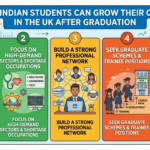As software systems become more complex and interconnected, companies are increasingly depending on highly skilled professionals who can lead technically and strategically. That’s where staff software developers come in. They aren’t just exceptional coders, they are technical visionaries who bridge the gap between engineering and business strategy.
For startups and large tech companies alike, the decision to hire staff software developers can shape product success, system reliability, and overall team productivity. These developers bring a blend of technical expertise, architectural foresight, and leadership that drives innovation while maintaining stability.
AD
But what truly sets standout staff software developers apart in 2025? Beyond coding ability, they possess a unique combination of skills that enable them to design scalable systems, guide teams, and make impactful decisions under pressure. Let’s dive into the key skills that make them indispensable assets to modern engineering organizations.
What Defines Technical Leadership in the Next Generation of Engineering Teams
1. Deep Technical Mastery and System Architecture
The foundation of any great staff developer is technical depth. They don’t just write code, they understand systems from the ground up. In 2025, that means mastering modern architectures like microservices, serverless computing, and distributed systems.
When companies hire staff software developers, they expect professionals who can design systems that scale seamlessly and remain maintainable over time. These developers know how to optimize for performance, reliability, and cost efficiency, balancing trade-offs that directly impact business outcomes.
For instance, a skilled staff developer can architect a platform that supports millions of concurrent users without compromising on speed or data security. They also understand cloud platforms like AWS, Azure, and Google Cloud, critical knowledge as tech companies continue moving toward hybrid and multi-cloud infrastructures.
Their technical insight ensures products are not just functional, but future-proof.
2. Strong Leadership and Mentorship Abilities
A staff software developer’s role goes far beyond individual contribution. They act as technical leaders, guiding teams, reviewing designs, and mentoring younger engineers.
In 2025, mentorship is one of the most valued aspects of senior engineering roles. Developers at this level help define coding standards, enforce best practices, and foster a culture of continuous learning within their teams.
When you hire staff software developers, you are investing in someone who uplifts your entire engineering organization. They don’t just fix bugs, they help others learn how to prevent them.
A report by Gallup found that teams with strong technical mentors are 21% more productive and retain talent longer. For startups and scaling tech companies, that kind of influence directly contributes to sustained innovation and lower turnover rates.
Leadership is what transforms a good developer into a force multiplier.
3. Problem-Solving and Critical Thinking
Every software project faces challenges; unexpected bugs, tight deadlines, and integration issues. What sets a standout staff developer apart is their ability to solve these problems strategically.
They are not just looking for temporary fixes; they focus on root causes. They are adept at diagnosing bottlenecks, refactoring outdated systems, and making thoughtful trade-offs between short-term deliverables and long-term stability.
Their analytical mindset helps organizations save both time and resources. For example, a staff developer might recommend re-architecting a core service rather than continually patching it, an insight that prevents future downtime and improves scalability.
In complex engineering environments, this kind of foresight and decision-making is invaluable. It’s the difference between reactive problem-solving and proactive innovation.
4. Expertise in DevOps and Automation
Speed and efficiency have become non-negotiable in modern development. Staff developers stand out by mastering DevOps tools and practices that enable teams to deploy faster and with fewer errors.
They understand continuous integration and continuous deployment (CI/CD) pipelines, containerization with Docker and Kubernetes, and automated testing frameworks. Their expertise ensures that releases are smooth and stable, reducing the time from code commit to production.
For example, an experienced staff developer can design an end-to-end CI/CD pipeline that cuts deployment time by 50%, allowing teams to release new features more frequently.
When tech companies hire staff software developers, they are looking for leaders who not only write great code but also optimize the entire delivery process, turning engineering into a well-oiled machine.
5. Collaboration Across Cross-Functional Teams
The best software isn’t built in silos. Staff developers excel at working with product managers, designers, QA teams, and even stakeholders outside of engineering.
Their ability to communicate complex technical concepts in simple terms helps align teams around shared goals. This cross-functional collaboration is crucial for ensuring that technical decisions support user needs and business objectives.
When you hire staff software developers, you are getting someone who can serve as a bridge between departments, translating technical realities into strategic recommendations.
In a world where distributed and hybrid teams are the norm, this ability to collaborate effectively across roles and time zones makes them invaluable contributors to company growth.
6. Commitment to Security and Compliance
With increasing cyber threats and stricter compliance standards, security has become an essential skill for software professionals. Staff developers are expected to bake security into every stage of the development process.
They understand encryption, secure APIs, authentication protocols, and data privacy regulations like GDPR or HIPAA. More importantly, they educate their teams about secure coding practices, reducing vulnerabilities before they reach production.
For growing tech companies, this expertise helps prevent data breaches and builds user trust, two factors that can make or break a business in competitive markets. Security-conscious developers don’t just react to threats, they design systems that inherently minimize them.
7. Adaptability to Emerging Technologies
The technology landscape evolves constantly, and staying relevant requires continuous learning. The best staff developers are curious, they explore new programming paradigms, frameworks, and tools not out of obligation, but because they genuinely love solving problems better.
In 2025, this adaptability means being open to trends like AI-assisted coding, low-code platforms, and edge computing. Developers who embrace these innovations can guide organizations through change rather than resist it.
When companies hire staff software engineers, they look for professionals who not only keep up with change but also lead it, evaluating emerging technologies and integrating them thoughtfully into existing ecosystems.
Adaptable engineers ensure businesses stay innovative without losing technical stability.
8. Business and Product Thinking
A great staff developer doesn’t just see lines of code, they see how those lines affect business outcomes. They understand metrics like user retention, conversion rates, and time-to-market, and they write software that improves those numbers.
Their decisions are informed by a deep understanding of both technology and product goals. This alignment between technical strategy and business value is what helps startups grow efficiently.
When you hire staff software developers, you are bringing in professionals who think like product owners. They will question feature priorities, recommend optimizations, and ensure that every technical effort contributes to measurable success.
This skill set makes them indispensable to leadership teams aiming to scale fast while maintaining operational excellence.
9. Emotional Intelligence and Team Empathy
While technical brilliance is essential, emotional intelligence (EQ) is what defines a true leader. Staff developers who understand team dynamics can resolve conflicts, motivate peers, and create an inclusive engineering culture.
They listen actively, value diverse perspectives, and know when to challenge ideas constructively. This empathy fosters trust, a key ingredient for high-performing teams.
In fact, a Harvard Business Review study found that teams with emotionally intelligent leaders outperform others by up to 25%.
When tech companies promote or hire staff software developers, they often prioritize EQ as much as technical skill, because emotionally aware leaders build stronger, more resilient teams.
10. Strategic Vision and Long-Term Thinking
At their core, staff software developers are technical strategists. They anticipate the future needs of both the product and the organization.
They ask questions like:
- How will this system perform when we scale to 10x traffic?
- What trade-offs are we making by choosing this technology today?
- How can we ensure long-term maintainability?
Their foresight helps companies avoid pitfalls that often come from short-term decision-making. When organizations hire staff software developers with strategic vision, they gain architects of sustainable innovation, people who see beyond immediate sprints to the company’s five-year roadmap.
This long-term perspective is what truly sets standout developers apart in 2025.
Final Thoughts
The role of a staff software developer has evolved into one of the most critical positions in modern engineering teams. It’s no longer just about coding excellence, it’s about leadership, strategy, and impact.
When you hire staff software developers, you are not just filling a role, you are investing in the backbone of your technology organization. These professionals bring the clarity, stability, and innovation needed to scale efficiently and build products that endure.
For startups and established tech companies, hiring the right staff developer means future-proofing your technology and empowering your teams to do their best work, today and tomorrow.









